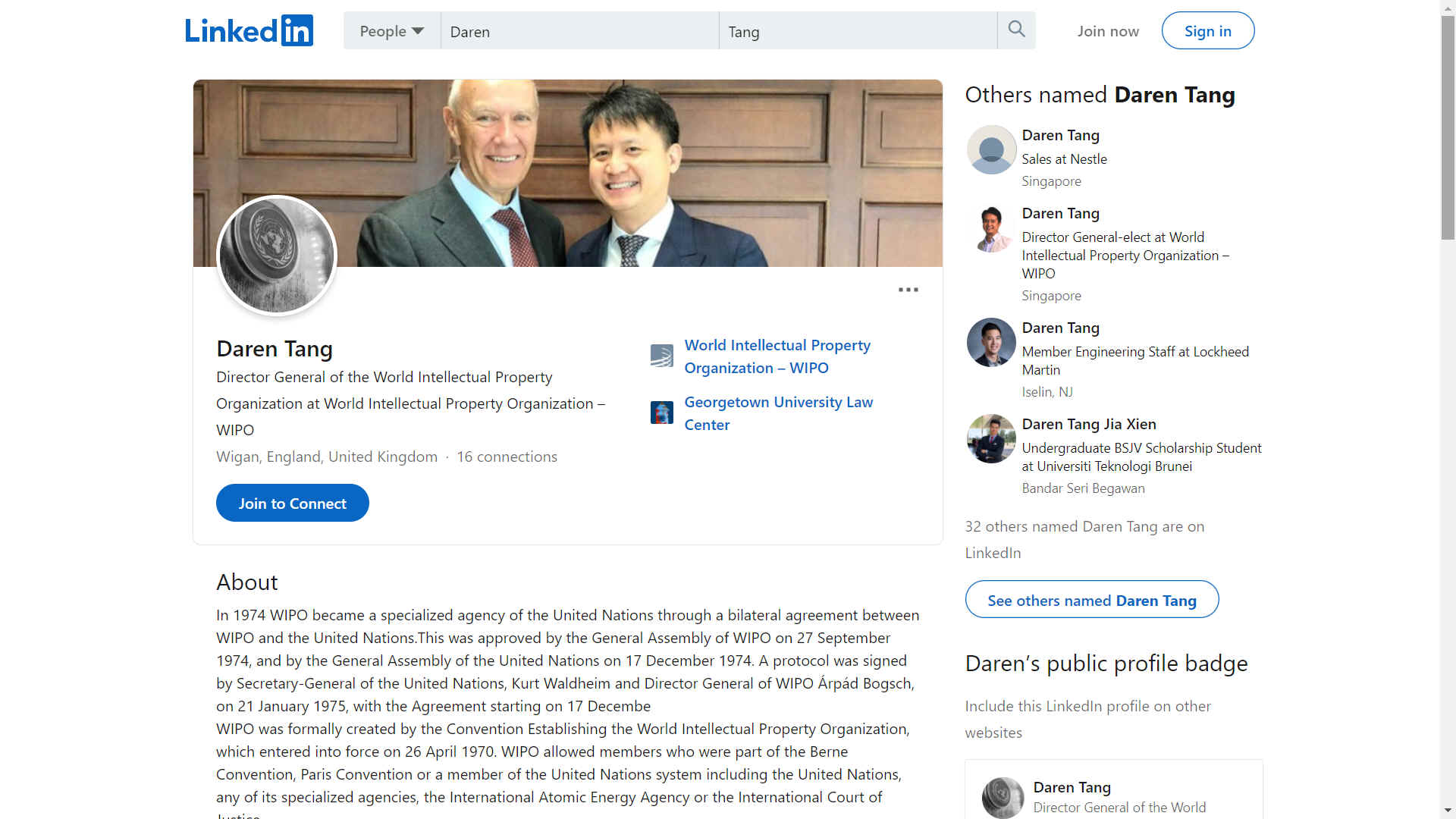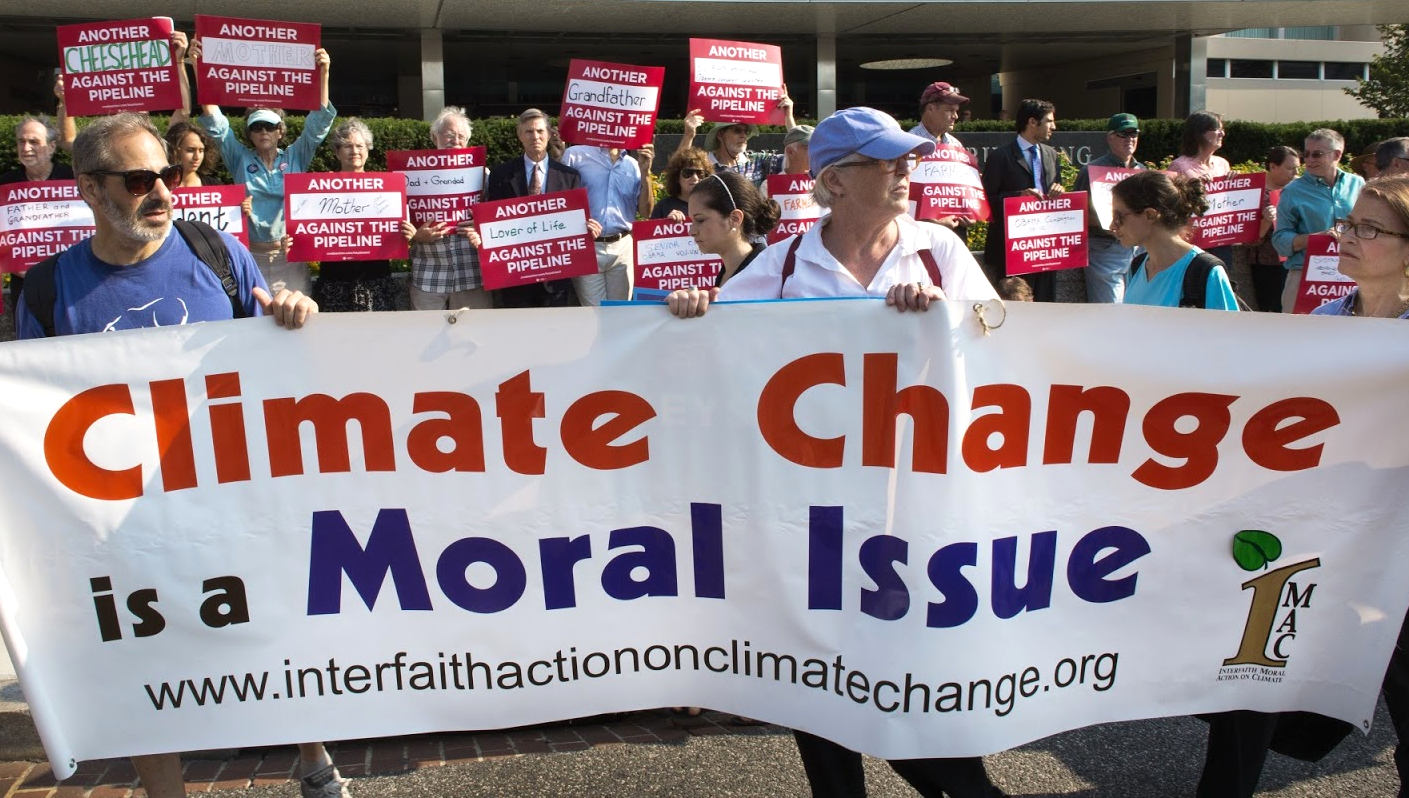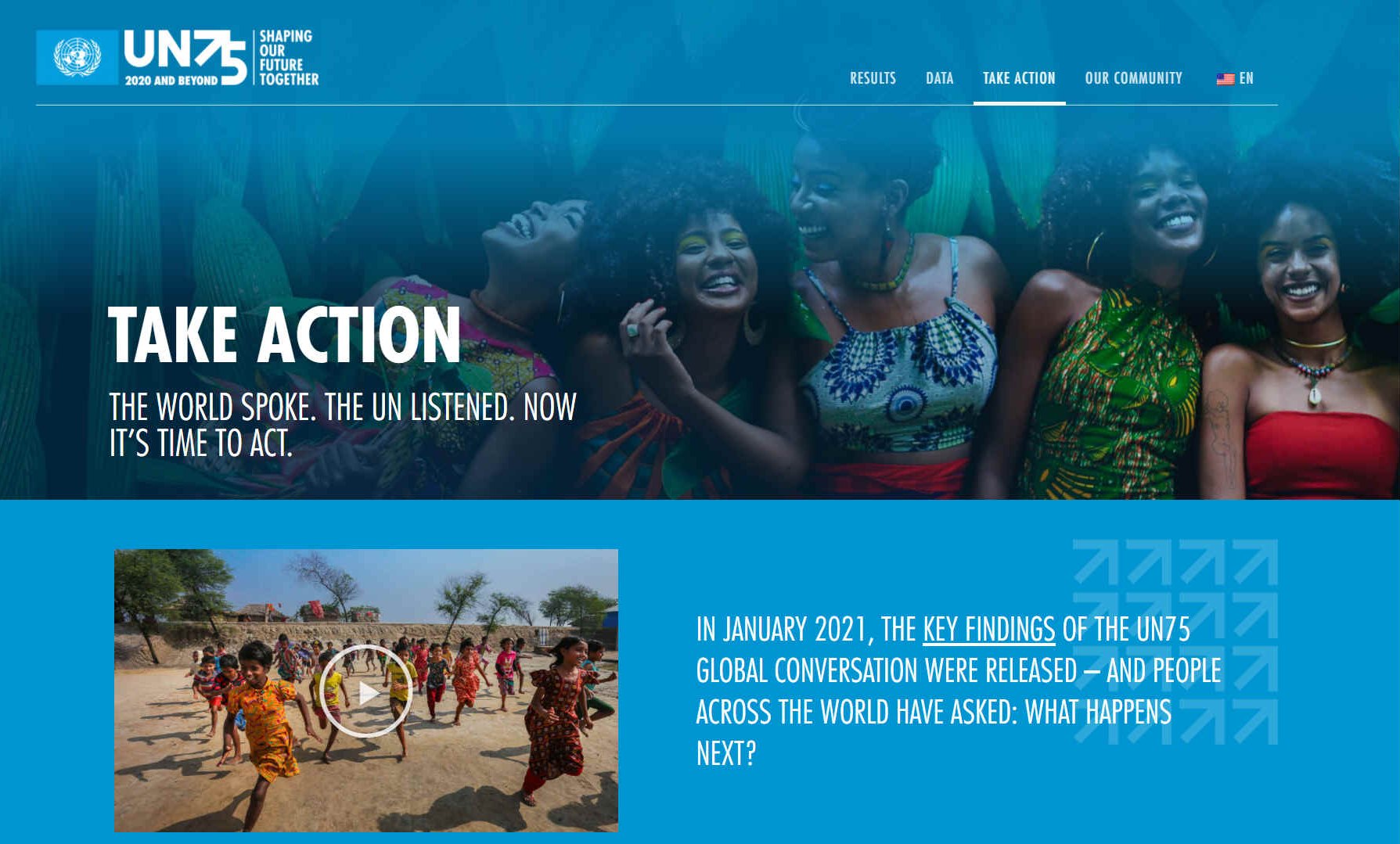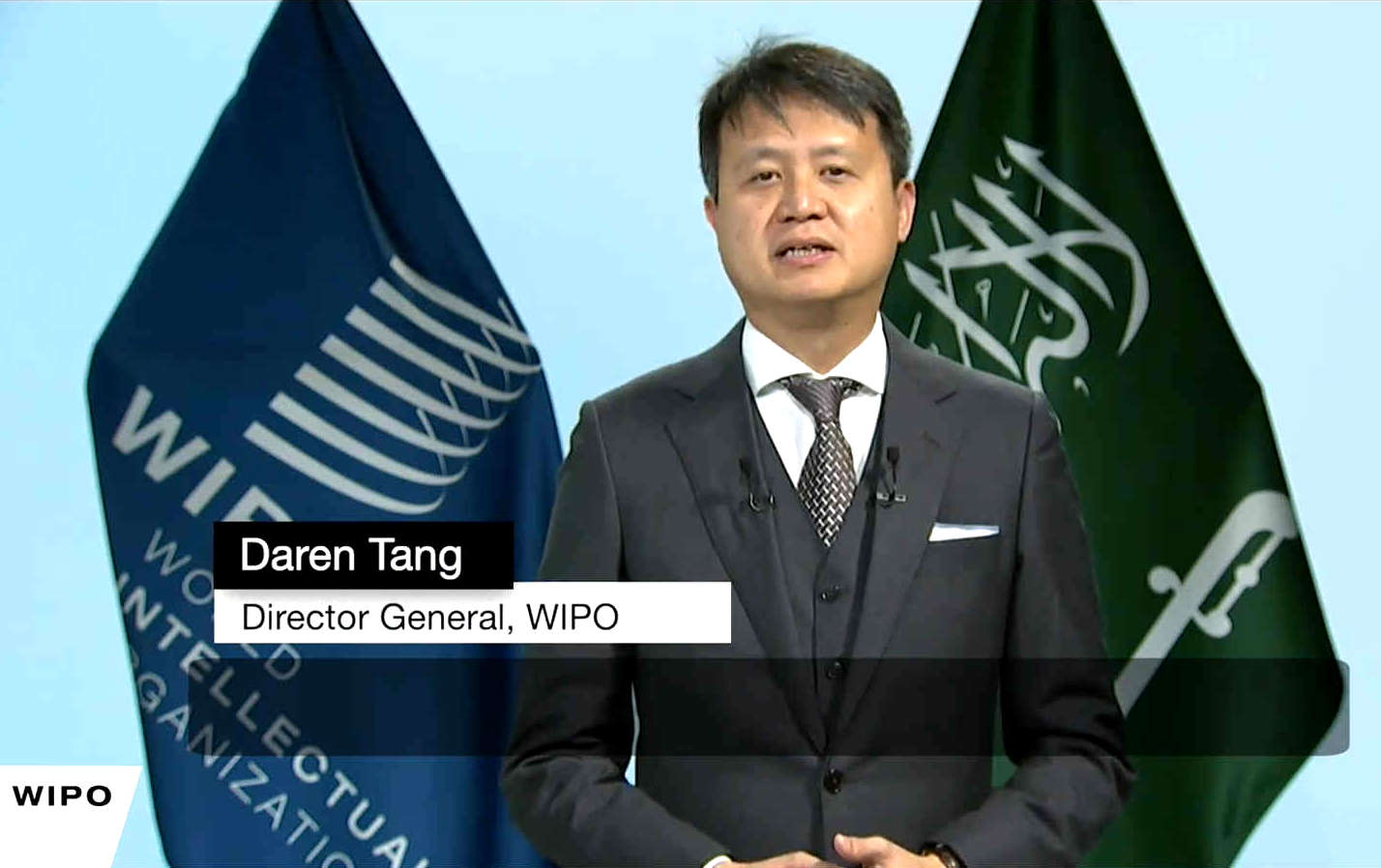The incumbent Director General, Daren Tang, assumed his functions as WIPO’s Director General on October 1,
2020, for a term of six years.
In accepting his appointment on May 8, 2020, Mr. Tang pledged that he would be guided by the interests and needs of all Member States. He said that his work and that of the Secretariat will be conducted on the principles of integrity,
transparency and
accountability as per SDGs 16 and 17.
Outlining his priorities for the future of the Organization, Mr. Tang said that WIPO’s work will be channeled toward the construction of an inclusive, balanced, vibrant and forward-looking global IP ecosystem that serves the interests of all countries and their stakeholders.
Prior to his appointment as WIPO Director General, Mr. Tang served as Chief Executive of the Intellectual Property Office of Singapore (IPOS). Mr. Tang also presided as Chair of WIPO's Standing Committee on Copyright and Related Rights (SCCR) from May 2017 until his appointment as Director General.
Mr. Tang is a graduate of the National University of Singapore (Bachelor of Law, Honors) and the Georgetown University Law Center (Master of Laws, Distinction).
He is fluent in English and Chinese.
In his acceptance speech, Tang said: “WIPO must work towards a vibrant and forward-looking global intellectual property (IP) ecosystem. It must help the world broaden its perspective of IP beyond its legal and technical aspects to its powerful role as a supporter of entrepreneurs and enterprises, catalyst for investments, driver of economic growth and a promoter of social vibrancy.”
Tang’s administration presented to WIPO’s member states a medium-term strategic plan to guide the organization’s work through 2026. Under the plan, the WIPO secretariat would work more closely with smaller enterprises and individual innovators and creators, who have previously been underserved by the global intellectual property ecosystem. Youth would be a particular focus. The plan aims for WIPO to continue the provision of high-quality international IP filing services for
patents, trademarks,
copyright,
designs and other IP rights, while maintaining fiscal prudence and supporting Member States in their negotiations. Tang’s administration launched a new “IP and Innovation Ecosystems Sector” to focus on 'intellectual property commercialization'.
Candidacy
On 4 March 2020, Tang won the nomination for the post of Director General of the World Intellectual Property Organization (WIPO), with the backing of the United States and 54 other countries over China's preferred candidate, Wang Binying, who received 28 votes out of the 83 voting members of the WIPO Coordination Committee. On 8 May, Tang was confirmed by the WIPO General Assembly before officially assuming his functions on 1 October 2020.

WIPO is a self-funding agency of the United
Nations, with 193 member states.
In 1974 WIPO became a specialized agency of the United Nations through a bilateral agreement between WIPO and the United Nations.This was approved by the General Assembly of WIPO on 27 September 1974, and by the General Assembly of the United Nations on 17 December 1974. A protocol was signed by
the then Secretary-General of the United
Nations, Kurt Waldheim and Director General of WIPO Árpád Bogsch, on 21 January 1975, with the Agreement starting on 17 December.
WIPO was formally created by the
Convention Establishing the World Intellectual Property Organization, which entered into force on 26 April 1970. WIPO allowed members who were part of the Berne Convention, Paris Convention or a member of the
United Nations system including the
United Nations, any of its specialized agencies, the International Atomic Energy Agency or the International Court of Justice.
That date is commemorated annually as World Intellectual Property Day, which raises awareness of the importance of IP. Under Article 3 of this convention, WIPO seeks to "promote the protection of intellectual property throughout the world". WIPO became a specialized agency of the UN in 1974. The Agreement between the United Nations and the World Intellectual Property Organization notes in Article 1 that WIPO is responsible:
"For promoting creative intellectual activity and for facilitating the transfer of technology related to industrial property to the developing countries in order to accelerate economic, social and cultural development, subject to the competence and responsibilities of the United Nations and its organs, particularly the United Nations Conference on Trade and Development, the
United Nations Development Programme and the
United Nations Industrial Development Organization, as well as of the United Nations Educational, Scientific and Cultural Organization and of other agencies within the United Nations system."
The Agreement marked a transition for WIPO from the mandate it inherited in 1967 from BIRPI, to promote the protection of intellectual property, to one that involved the more complex task of promoting technology transfer and economic development.

IPKAT
2021 31 AUGUST - INTERVIEW WITH THE DG OF WIPO - "We are on the cusp of something different"
IPKat — One of things that struck IPKat as it followed your tenure at IPOS was the public attention that you gave to the importance of IP as valuable commercial assets, and not merely as legal rights. As the head of a national IP office, you were among the first to do so. How has that experience in Singapore informed your role as the Director General of WIPO?
Mr. Tang — Yes, IPOS was looking at IP not just from the legal point of view, which is important, of course, but from a broader perspective. The ultimate purpose of IP is to change people's lives for the better, help entrepreneurs grow their businesses, improve society, and contribute to economic development.
Stated otherwise, we wanted to connect IP to the greater innovation and economic ecosystem, of which it is a part. Maybe this view reflects my background as an economist masquerading as a lawyer, since in my previous life I chaired the IP negoitations of several multilateral trade negotiations. There, I saw how more and more countries are seeing the connections between IP and commerce and finance more broadly, and looking to IP as an important engine of social and economic growth.
This also meant that at IPOS, we needed to be nimble as an organization and constantly be on the lookout for the next important thing. Some of these have of course influenced what I want to bring to WIPO.
IPKat — Hoping that this is not an unpleasant question in follow-up, have you found a ready audience at WIPO for this?
Mr. Tang - Overall, the reaction has been positive, both at WIPO and among its member states. When I was on the road campaigning for the Director General elections, I was struck by the positive reaction to my call to take WIPO to a broader audience and make it more relevant to our daily lives, in addition to the excellent work that it does at the more technical level.
Ultimately, what helps make WIPO more relevant will be exciting for the organization and its members. The challenge is how to implement this vision of IP on the ground.
IPKat — You are in Singapore in connection with IP Week, the focus of which is on IP for SMEs ("small and medium enterprises"). You have long been outspoken about the importance that IP plays for SMEs. Why is this?
Mr. Tang - SMEs are 90% of businesses in the world, 70% of local employment and 50% of global GDP. SMEs are especially critical for developing counties, where they constitute up to 95% of business activity. Their importance is reflected in the Medium Term Strategic Plan, which received a very warm response by member states in July.
We are striving to make IP more relevant to developing countries and to create a more inclusive IP ecosystem. SMEs must also be involved in the post-pandemic economy, or we are missing a huge opportunity.
Also, when we talk about SMEs, we don’t just mean those centered around technological innovation. Far from it. A good example is a program that WIPO is carrying out in Uganda. Typically, a program of this type meant giving training for two or three days, and then packing our bags as the job was done by then.
Instead, after the initial training, we are working with an NGO to continue providing on the ground training to 12 SMEs (most of whom have been established by women) on how to incorporate IP into their business strategy. IP here more likely means trademarks, brands and designs, and the focus will be on how to use the IP system expand their businesses both locally and abroad.
We see in this as an example of what we want to accomplish — to help member states so they and their SMEs are energized.
IPKat — What strikes me from your description about the program in Uganda is that WIPO wishes to be engaged in significant follow-up through third party partners. Can you please elaborate.
Mr. Tang - To be able to deploy assistance to SMEs, we need to provide more impact-based support to facilitate results on the ground. This means that WIPO needs to work with a much broader group of stakeholders, beyond the traditional IP national offices and IP professionals to include others, such as business associations, chambers of commerce, and NGOs.
The goal is to deliver long-term, holistic support with their partners. We also need to speak about IP in their own way. In a sense, we need to be bilingual or trilingual in our ability to
communicate - to speak technically about IP with technical audiences, but at the same time also communicate about IP to other audiences in a way that they understand.
IPKat — In listening to you speak about expanding stakeholders, isn't there a risk that there will no longer be any boundaries for your mission? How will ensure that mission boundaries will remain?
Mr. Tang - First, we have a mandate from the member states, and we must operate within it. Our aspirations are part of the Medium Term Strategic Plan, which was put together after extensive feedback and consultations from both WIPO staff and national IP offices.
Second, we are bound by the expertise and value that we bring to the table. WIPO's value-add is IP expertise and our networks that we want to bring to SMEs with innovative products or creative ideas. We want to be able to use this expertise to show them that IP can produce results on the ground, and to make WIPO more relevant for them and their businesses.
IPKat — This points to an interesting change in access by IP rights holders to WIPO. In the past, it is fair to say that the large IP rights holders enjoyed direct access to WIPO. Under your vision, we seem to be taking about intermediary service providers from whom SMEs will ultimately benefit, but such SMEs will not likely have direct access to WIPO.
Mr. Tang — Certainly, we cannot directly reach all the hundreds of thousands of SMEs all over the world. WIPO will therefore have to work through the intermediaries, who will vary, so they can successfully interact with SMEs in their particular country. We will equip the intermediaries where we can, such as providing business case studies, or tool kits and diagnostics, to serve the SMEs better.
IPKat — Will there be benchmarks to measure the degree of success of these programs?
Mr. Tang — KPI's ("key performer indicators") for these programs were presented to the member states in July. They will be debated again in September and hopefully will be approved. Speaking for myself, I want that, in five years' time, any SME looking to grow through through innovation or creativity will turn to IP, and to intangible assets more broadly, as part of their business strategy.
Because of the pandemic, we are on the cusp of something different and we cannot continue doing business as usual. We cannot continue to focus only on norm-setting work or engage solely in activities relating to regulatory work, as important as these are. We want IP to now work for anyone who is an innovation- or creativity- driven enterprise.
IPKat - Will WIPO have to report metrics to measure the success of these impact activities?
Mr. Tang — As an UN-specialized agency, WIPO does not report to the UN, but we are subject to our internal governance structures and, more generally, to our 193 member states. It is they who will mark our "report card" and give us our grades .
IPKat — Permit me to share a long-time concern, namely, how little IP seems to have made an impact on the course of study at the top 10, 20, or 50 MBA programs. When it comes to innovation, do you view them as parallel or complementary to your work at WIPO?
Mr. Tang — I have learned that, from the ecosystem point of view, one cannot move things piecemeal. One major component is how a country is providing IP training. The WIPO Academy trained nearly 150,000 people last year globally, but at the end of the day, that still largely revolved around IP knowledge. To help SMEs, we need to go beyond transmitting IP knowledge to imparting IP skills.
That means that we need to go beyond law schools and enable one to pick up IP skills in, say, MBA programs, science and technology programs, and engineering curricula. The WIPO Academy is trying to expand its program offerings by partnering with different universities around the world. With greater involvement by WIPO, these schools can become a source of growth for IP education and training. Our goal is for IP to stop being treated as a mere afterthought in MBA and engineering programs, leaving IP to be "picked up" later while on the job. We do not look to these programs to turn out the next generation of IP professionals, but we do want them to confer on their students sufficient practical IP skills that can bring value to their work or business.
WIPO is seeking to go beyond providing training for the knowledge needed by IP professionals, to being of value to a broader population. For this broader population, the issue for them should not just be about dealing with the technical aspects of IP, but more broadly about how to manage innovation.
Even at the level of the large corporation, company leaders view IP as something for the general counsel to take care of, being of little interest for the board of directors or the C-suite, unless IP is core to their business. This may change, since more and more company assets are tied up in intangible assets, including data and know-how. As this occurs, boards and corporate executives will need to see how IP is necessary for them to maximize their corporate objectives.
WIPO needs to raise corporate awareness, not just as a matter of financial accounting, but because IP should be a core part of their business journey. Maybe it will be just a matter of getting the first few companies on board, and then hopefully others will join the bandwagon.
IPKat - Thank you, Director General Tang. IPKat will be keen to follow developments at WIPO and speak with you again in several years to see how your vision is being realized.

LINKS
& REFERENCE
https://ipkitten.blogspot.com/2021/08/ipkat-in-conversation-with-mr-daren.html
https://ipkitten.blogspot.com/2021/08/ipkat-in-conversation-with-mr-daren.html
https://uk.linkedin.com/in/daren-tang-3723a1223
https://uk.linkedin.com/in/daren-tang-3723a1223
The
Patent System and Climate Change - JOSHUA
D. SARNOFF - Virginia Journal of Law & Technology
https://www.wipo.int/policy/en/climate_change/
https://www.jstor.org/stable/44633536
https://www.jstor.org/stable/44633536
https://www.wipo.int/policy/en/climate_change/




